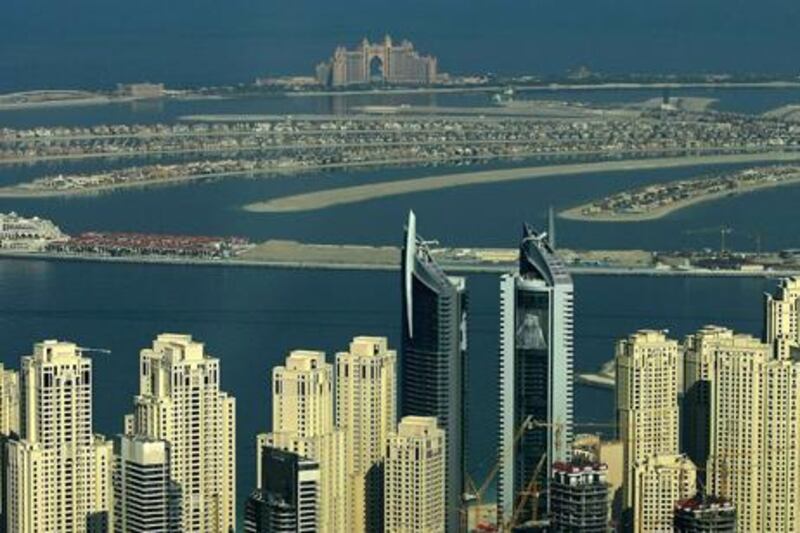Dubai government companies raised their debt over the past year to an estimated US$93 billion, said the IMF, as it cautioned against a renewed borrowing binge.
Rising optimism about property prices and easier access to global liquidity could prompt a renewed cycle of risk taking by such companies, the fund warned. "In the absence of prudent policies, this could fuel short-term growth at the expense of medium-term stability," it said in a statement concluding its annual mission to the UAE.
Debt issuers in Dubai have ramped up bond sales this year after the emirate's credit risk dropped to its lowest since the global financial downturn in 2008. A $1.25bn bond and sukuk sale by the Dubai Government in January was followed last month by a $1bn bond by Emirates NBD, the emirate's largest bank.
It comes as the emirate rebounds from a debt crisis after Dubai World, the Dubai government-controlled conglomerate, restructuring $25bn in debt in 2011.
Dubai's stable of government-linked firms upped their debt over the past year to about $93bn, from around $84bn in March last year, said the IMF.
A recovery in property prices and an improving global economic backdrop have supported fresh borrowing, while enabling Dubai companies to restructure old debts and sell off assets acquired before the financial crisis. Dubai World sold a British logistics business, Gazeley, for an undisclosed sum, it emerged this week.
Bur Dubai's debt remained "substantial" at $142bn, about 102 per cent of GDP, the IMF said. Around $60bn of that amount fell due between this year and 2017, it said.
Forthcoming maturing debt next year included $20bn in Dubai government debt lent by Abu Dhabi and the Central Bank in 2009 as part of the Dubai Financial Support Fund. The cash was used to help companies struggling in the aftermath of the financial crisis.
Restructured debt related to Dubai World and Nakheel, the property company, will begin to mature in 2015 and 2016, the IMF said.
"While the Dubai Government and government-related entities have been actively looking at opportunities for debt refinancing, timely communication about these key maturities will be important to support market confidence," the statement said.
Continuing focus on improving the transparency of Dubai's government-related firms would be important to strengthen their resilience, it said.
Abu Dhabi had made "notable progress" in monitoring and making available data on the debt of government-linked firms through its debt management office.
But data availability on financial conditions, debt stocks and maturity profiles of Dubai's companies remained "inadequate" for an assessment of their financial health, the IMF said.
Dubai should establish a full debt management office tasked with overseeing such debt, the statement added.
Since the financial crisis Dubai had replaced the boards of directors of several of its companies and required new borrowing to be approved by the Supreme Fiscal Committee.
Building on such improvements, the IMF said key steps for further strengthening corporate governance included delineating clearly between their commercial and noncommercial operations and strengthening the role and independence of company boards to allow for more effective decision-making.
tarnold@thenational.ae
IMF warns Dubai on debt risks
Dubai Government companies raised their debt over the past year to an estimated US$93 billion, said the IMF, as it cautioned against a renewed borrowing binge.

Editor's picks
More from the national




